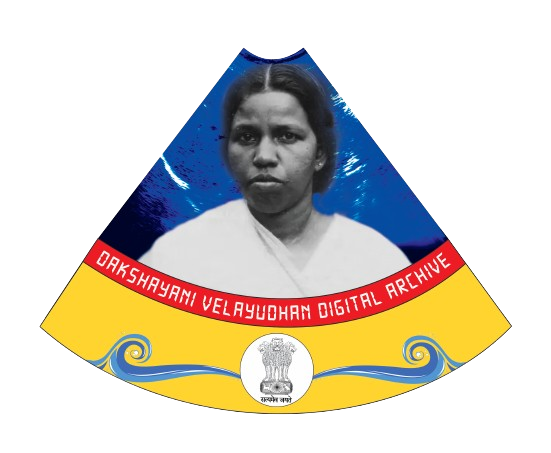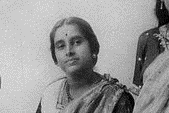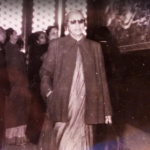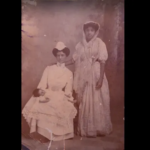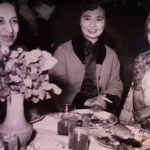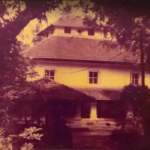Ammu Swaminathan, born in 1894 in Palakkad, Kerala, embarked on a journey that encompassed various facets of social and political activism. Her pursuit of English education and subsequent move to Madras following her marriage to S. Swaminathan marked the beginning of her involvement in the political and women’s rights movement.
| KEY INFORMATION | |
| Party | Indian National Congress |
| Constituency | Madras |
| Mother Tongue | Tamil |
| Education: | |
| Committee Memberships | None |
| Date of Signing Register | 9 December 1946 |
In 1917, she collaborated with influential figures such as Kamaladevi Chattopadhyay, Annie Besant, and Muthulakshmi Reddy to establish the Women’s India Association (WIA) at Adyar, Madras. Under her leadership, WIA evolved into one of the largest women’s rights organizations in India. The association focused on addressing social issues like child marriage and the devadasi practice. Notably, it played an active role in advocating for women’s voting rights before the Montague Chelmsford Commission in 1917 and the Southborough Commission in 1918. Ammu Swaminathan played a pivotal role in establishing the Women’s India Association, a significant advocate for women’s rights that evolved into one of the largest organizations in this regard. Additionally, she actively recruited housewives for the Indian National Congress, drawing inspiration from Mahatma Gandhi’s principles.
During an incident of her imprisonment, she confronted a derogatory term used for a sanitary worker, declaring defiantly, “I’m a shudrachi too. Tell me.” This incident highlights her fierce advocacy for equality. Acknowledging the intersectionality of challenges faced by women, it’s crucial to recognize Ammu Swaminathan’s background as a Tamil Brahmin from an affluent family. Despite enjoying a privileged upbringing, characterized by a fondness for elaborate parties and luxurious saris, her impactful contributions to women’s rights remain noteworthy.
Swaminathan’s commitment to India’s independence movement led her to join the Indian National Congress in 1934. She actively participated in the Quit India Movement in 1942, resulting in her imprisonment in the subsequent year. Throughout her political career, she consistently championed women’s rights, advocating for reforms in laws related to succession, inheritance, and marriage.
Her contributions extended to the Constituent Assembly, where she was elected from the Madras Constituency in 1946. In this capacity, she spoke on fundamental rights and directive principles, leaving an indelible mark on the constitutional framework of independent India.
While residing with her aunt, Ammu Swaminathan, in Chennai, she actively engaged in numerous protests during the Quit India movement. Notably, her fervent commitment to the cause led her to participate in a protest march at the Madras secretariat, resulting in her incarceration. Undeterred by this setback, her dedicated involvement in Malabar led to her appointment as the secretary of the women’s wing of the Indian National Congress (INC).
Even after the attainment of independence, her dedication to societal betterment endured. Embodying her principles, she consistently wore khadi and passionately conveyed her ideologies to the younger generation. Her post-independence contributions underscore her enduring commitment to serving the people and advocating for the values she held dear.
Post-independence, Ammu Swaminathan continued her impactful journey. She secured a seat in the first Lok Sabha in 1952 and later in the Rajya Sabha in 1954. Beyond her parliamentary duties, her passion for movies led her to become the Vice President of the Federation of Film Societies and the Censor Board. Additionally, she served as the President of the Bharat Scouts and Guides from 1960 to 1965.
Her multifaceted contributions continued until her passing in 1978, leaving behind a legacy that spanned the realms of politics, social reform, and cultural affairs.
Key Speeches
Ammu Swaminathan, representing the Madras Constituency, served as a member of the Constituent Assembly. Despite delivering one of the briefest speeches among the women in the Assembly, consisting of approximately 1000 words, her succinct address encapsulated the ideals that she not only advocated for but actively worked towards throughout her life.
On the length of the Constitution
“I always imagined a constitution and still believe, to be a small volume which one could carry in ones purse or pocket and not a huge big volume. There was no necessity to go into so many details as has been done here. All the details, I think, should have been left to the Government and the legislatures.”
On making the Constitution work
“I think if we are to deserve this Constitution we have to make up our minds to work it, into something alive and something that will be of benefit to every citizen of this country. I know that the Constitution gives us in the Fundamental Rights, equal status, adult franchise […] but […] we have to see that these ideas and ideals which are on paper in the Constitution are implemented by the people of this country.”
Let us hope that in the years to come this Constitution will be considered as something worthy of our country.
Fundamental Rights
“The fundamental rights of the people of India are guaranteed in such matters as freedom of speech, association and worship. The last is a very vital question to the people of this country.”
Equality and Women’s Rights
In her concluding speech, she emphasized the importance of equal rights, asserting that India, through its Constitution, has granted women rights on par with every other citizen. This stands as a powerful tribute to her life’s work.
On 24 November 1949, two days before the adoption of the Constitution, in her general comments on the Constitution, Ammu stated that fundamental rights and directive principles constituted the core of the Constitution. However, she was not pleased with the ‘bulkiness’ of the constitution and would have rather preferred one that could be carried in a pocket.[1]
Fundamental Rights and Directive Principles: Twin Pillars of the Constitution[2]
Sir, the passing of this Constitution for an Independent India can be called without exaggeration the realisation of a great dream of four hundred million people. For so many years the people of this country had been working for this realisation and today we have actually got what we had been working for.
The first picture which really comes into my mind when I stand here this afternoon is the picture of the great man, Mahatma Gandhi, who by years and years of untiring work made it possible for us today to be an independent country. I think if we are to deserve this Constitution we have to make up our minds to work it, into something alive and something that will be of benefit to every citizen of this country. I know that the Constitution gives us in the Fundamental Rights, equal status, adult franchise and has also provided for the removal of untouchability and things of that kind for which India had been fighting all these years. But all these things appearing on paper is not enough if we are to make this country happy and prosperous. We have to see that these ideas and ideals which are on paper in the Constitution are implemented by the people of this country.
Sir, I would also like to pay my tribute to you and join with other Members who had congratulated you and shown their gratitude to you. All Members of this Assembly will always remember you with great affection and esteem and we will always remember the kindness and consideration you have shown towards every Member of this House.
We have also to pay our tribute to Dr. Ambedkar and the members of the Drafting Committee and the Secretariat of the Constituent Assembly for the very hard work that they had put in for so many weeks and months. I know their task has not been an easy one but they have overcome all difficulties and thus we are today on the eve of passing this great Constitution of our country.
I feel that the Constitution actually rests on two pillars – Fundamental Rights and the Directive Principles of State Policy. The fundamental rights of the people of India are guaranteed in such matters as freedom of speech, association and worship. The last is a very vital question to the people of this country. The Hindus have always been known to be tolerant towards all religions and we have put that down in our Constitution so that there will be no mistake about it and nobody can say that our Constitution did not include freedom of worship to every citizen of this country.
Now it is for us to see that this Constitution is worked properly so as to bring about the democratic State in India for which we had been working and hoping for and when we bring this about we must see that not only the rights are assured to every citizen but that he knows his duties and responsibilities towards the State. His freedom should be so used as to be of benefit to this country. Freedom is not to be used for doing anything that anyone likes. As it is so often said, freedom does not mean license. Let us hope that in the years to come this Constitution will be considered as something worthy of our country. Though there are many who find fault with a great number of clauses in it I hope they will remember that when we were going on with this work of constitution-making India was passing through difficult times, very unhappy times and our task was a very difficult one. I feel that it has been a great achievement to have been able to bring all the divergent opinions together and frame a Constitution of this kind which has been agreed to by a very large majority, though perhaps not by all.
A great many Members of this House have been praising this Constitution and there has been a certain amount of criticism also. There is one criticism which I would like to make and that is that this Constitution is to my mind a very long and a very bulky volume. I always imagined a constitution and still believe, to be a small volume which one could carry in one’s purse or pocket and not a huge big volume. There was no necessity to go into so many details as has been done here. All the details, I think, should have been left to the Government and the legislatures. After all they are going to function according to the policy laid down by the Constitution and was it necessary, I would ask, to load the Constitution with all this? I know very little about constitution making, nor do I pretend to be an expert. But I do feel as one of the citizens of India and as one of those who have been a member of a legislature for two or three years that it was not necessary to have so much details in the Constitution. However, as it is I do think that it is a great piece of work and I would like to say that it has been a great joy and happiness to me to have been here as a Member of this Assembly when framing the Constitution of India and I hope that some of us will live to see that the Constitution becomes a real stronghold for human rights and it will be worked towards establishing a real democracy, so that there will be happiness and prosperity for every one in India.
Equal right is a great thing and it is only fitting that it has been included in the Constitution. People outside have been saying that India did not give equal rights to her women. Now we can say that when the Indian people themselves framed their Constitution they have given rights to women equal with every other citizen of the country. That in itself is a great achievement and it is going to help our women not only to realise their responsibilities but to come forward and fully shoulder their responsibilities to make India a great country that she had been.
With these few words, Sir, I strongly support that the Constitution may be passed.
[1] https://www.constitutionofindia.net/members/ammu-swaminathan/
[2] Discussion on the Motion by Dr. B.R. Ambedkar to pass the Draft Constitution, C.A.D., Vol. XI, L.S.S., 24 November 1949, pp. 914-915.
